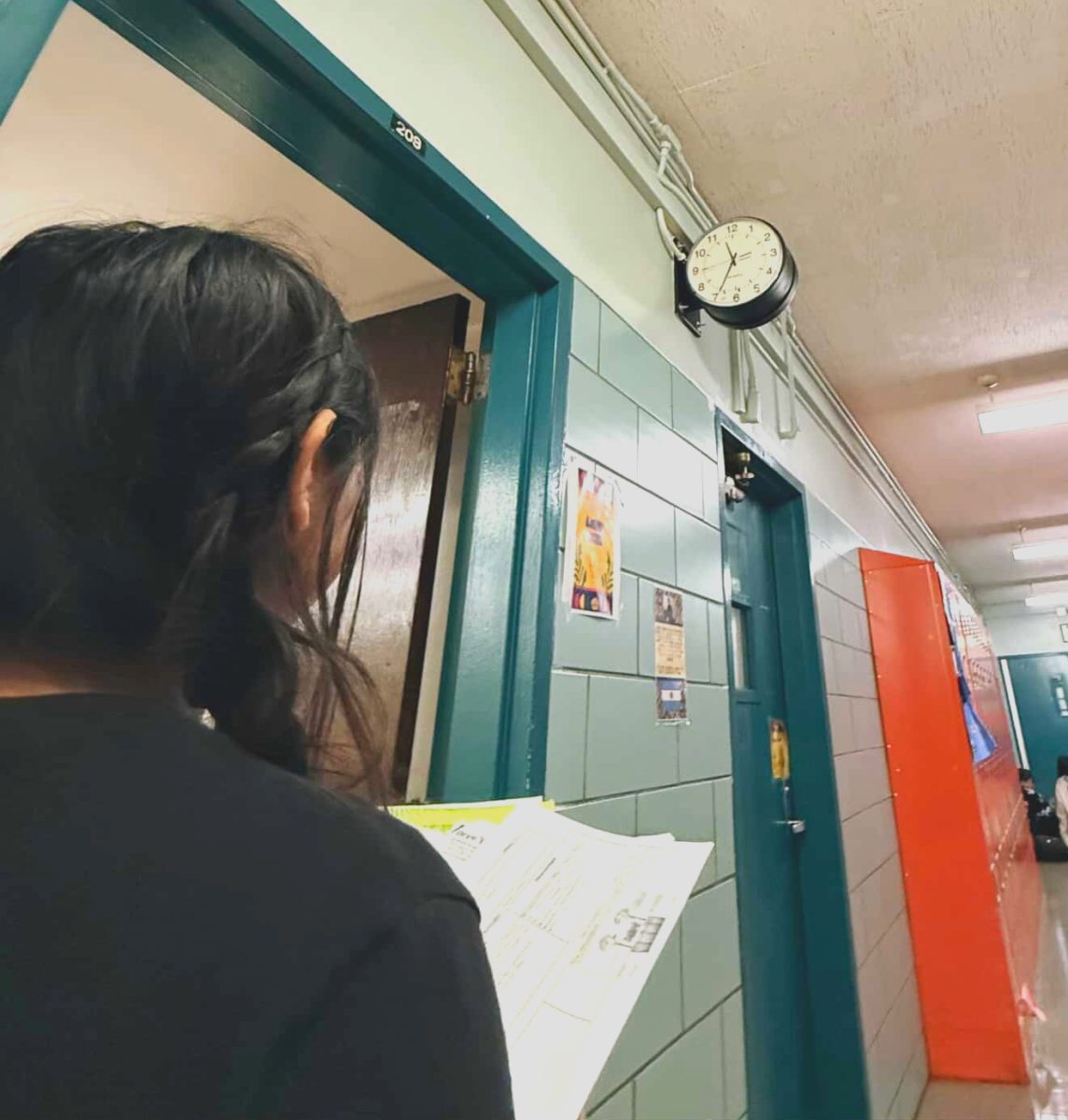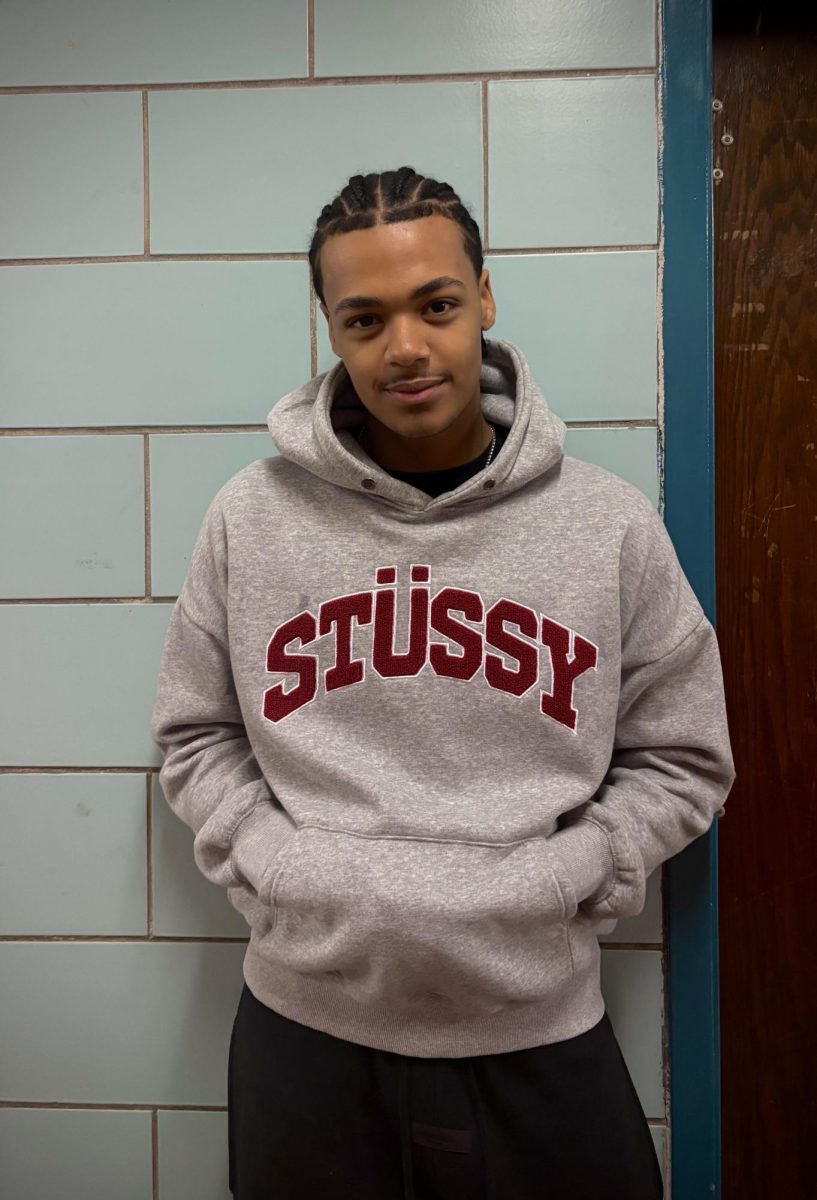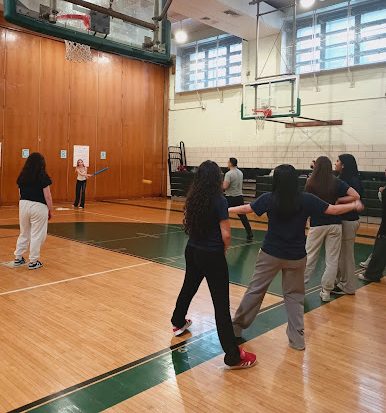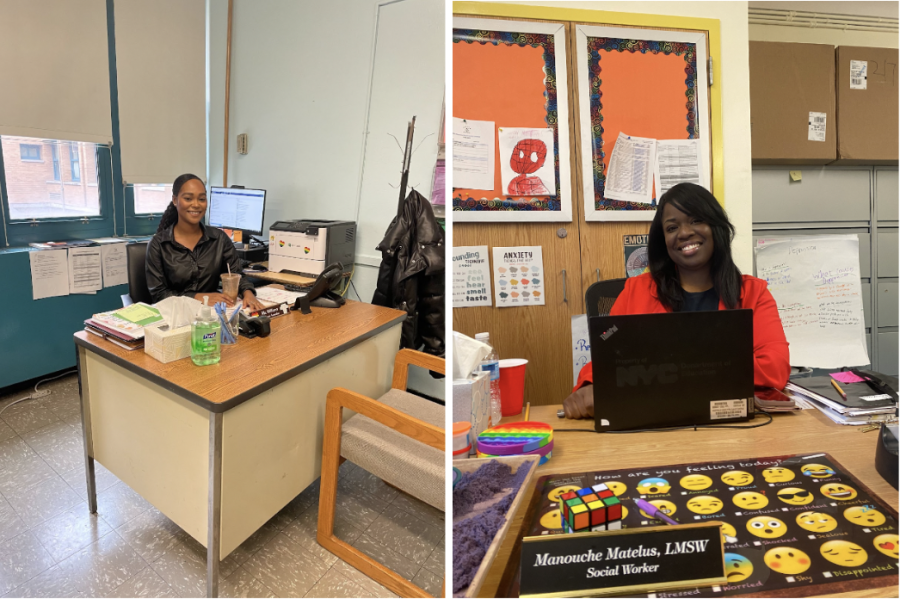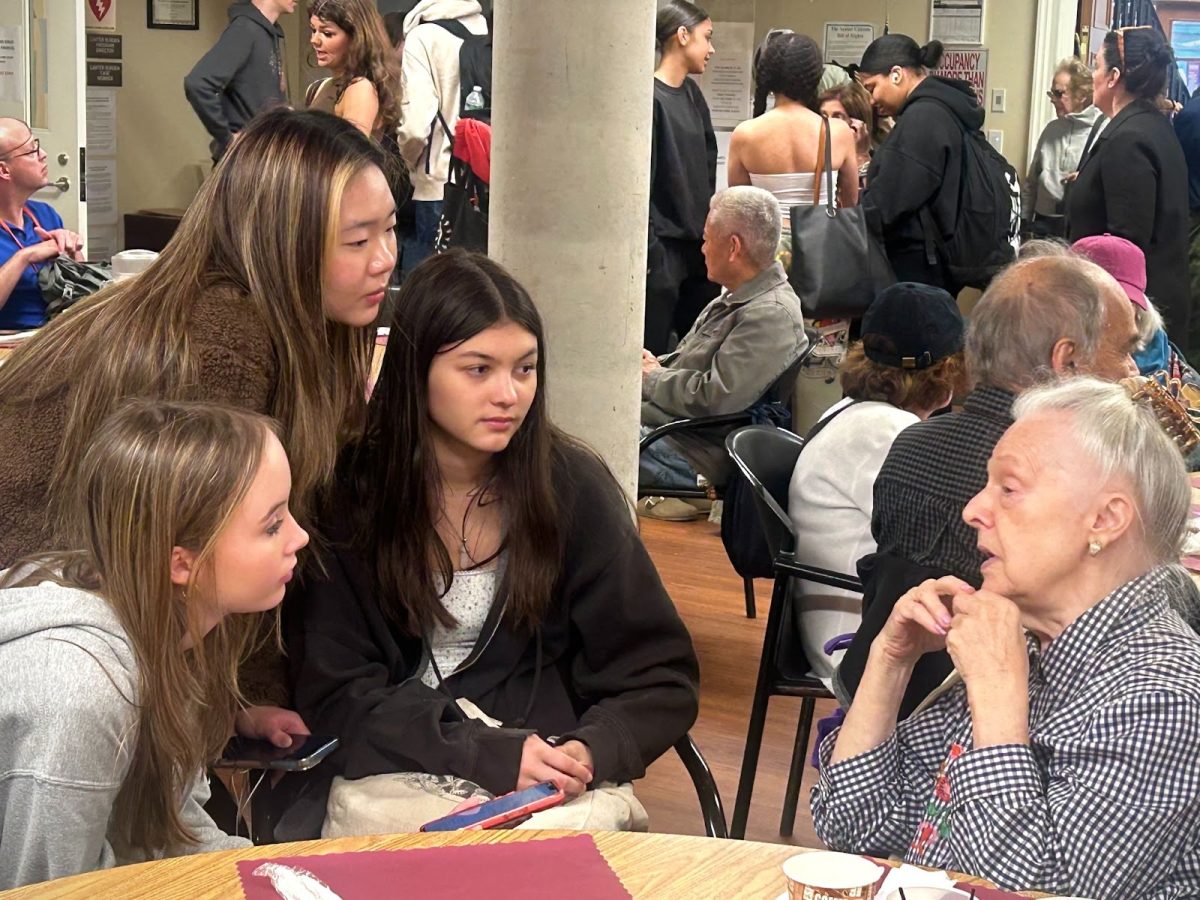Mental Health at Museum School
Ms. Williams (l.), school guidance counselor. Ms. Matelus (r.), school social worker, looking forward to helping kids in need.
December 21, 2022
Mental health is definitely not a new topic in society and media, especially for teens and young adults. An increase in work, constant talk about college, physical changes, and having to navigate social situations can create stress, anxiety, and depression. The question is, what can we do as a school to decrease stress and anxiety?
New York City Museum School has made great strides to help its students by providing resources like the school guidance counselor Ms.Williams, and the school social worker Mrs. Matelus. Museum has also instituted classes like Health and Social Emotional Learning (SEL) and Wellness Wednesday to discuss issues related to mental health and self-care. While these are real steps to help students, are they enough? What do teachers think of these strides in mental health? Does more change need to happen?
Ms. Willams explained how kids who are struggling tend to think that they are alone and there is no hope, but teachers notice and want to help. Since Museum is such a small school, Ms. Williams is able to create connections with kids and understand the dynamics of school life. Ms. Williams doesn’t let her students fly under the radar. She wants to help students not feel alone and address the problem head-on rather than allow it to get worse. She is a great outlet to come to whether a student is in crisis or just needs someone to talk to, especially as students learn to advocate for themselves and for their own well-being. Ms. Williams said, “Students are oftentimes shocked that I know as much as I know. I notice as much as I notice because they think they’re flying under the radar.”
When senior Kymberli Smith was asked about how she gets the help she needs at school she said, “Over time, I’ve learned how big of a deal it is to ask for help. Teachers won’t just let you drown, but you have to tell them that something is wrong. When I’m struggling with school and am overwhelmed, I ask Ms. Williams or Ms. Ortiz for help, and they both always help me find the best solution.”
Learning how to help yourself is a really important skill, especially if you are struggling with school. Students can be struggling in many ways: academically, socially or emotionally. The role of a guidance counselor has changed in that the counselor does not only discuss grades and academics, but also how to handle emotions and conflicts. Ms.Williams helps students with a range of problems, from students who have learning issues advocating for themselves, to advising students who are struggling with teachers, to helping with any conflict or issue a student may be facing.
While it can be hard to ask for help at first, the minute you reach out you are no longer struggling alone. We tend to forget that other people have issues and problems in their own lives and have gone through the same things. Reaching out to trusted guardians or adults at school can make a real change in students’ lives.
A major stressor for students is looming tests, most of the standardized variety. Ms. Mendez, the Global and US History teacher at Museum, discussed the limitations of standardized testing and the stress it can bring students. “Just having a multiple choice test and then an essay isn’t really showing what you can do as a student. A lot of kids flourish when they do something creative. [Some]… people like slides or some people do like writing essays but that’s not every kid. And I think that is unfair and that causes the level of anxiety.”
Standardized testing has been given for years, but some argue it doesn’t truly show one’s knowledge. Kids do not all have the same learning or testing style, and giving creative outlets to show knowledge is equally valuable. Colleges have even started to make SATs optional, and other schools in New York City are giving final projects instead of Regents exams. Making standardized tests optional would take not only stress off students but also lessen anxiety and depression. Museum should recognize and consider how much of a difference finding alternative testing options would have on students.
Not only is it important to hear what teachers think about mental health and what schools can do to help, but it’s also important to hear what students have to say. Valentina Santiago, a sophomore at Museum, said, “I think Museum does the best they can to try and make sure students get what they need, but some teachers don’t really understand the students’ needs or care enough to put in the effort for students when they need extra help.”
Nik Martinez, a junior at Museum School, had a very similar experience “We need more teachers and more support. Expecting one teacher to tend to the special strengths and struggles of about twenty to thirty students is completely unreasonable.”
Museum School has made great efforts and installed ways to help their students who are struggling with mental health. No one is perfect, and no system is perfect either. By continuing to talk and listen to the students and the Museum community, we can learn what students want and need, and work on ways of helping those who are struggling with school and mental health issues.
We can do this by continuing to collaborate on ideas in classes, learning more from Wellness Wednesdays, and talking to the administrators and teachers at school and advocating for change. The conversation about mental health has shown how as a community, we can find ways to help and educate one another about mental health and wellness.











